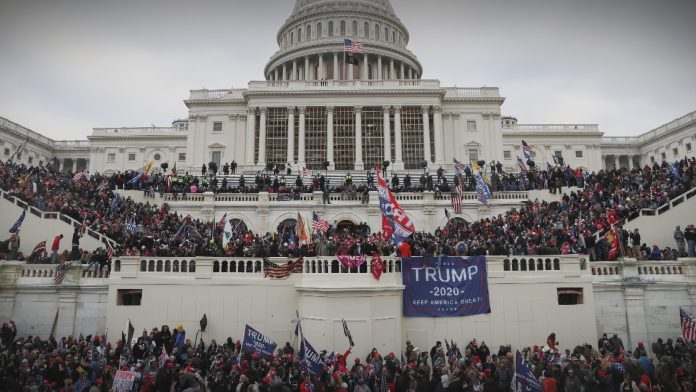Since 6 January 2021, American democracy has shown its mettle: hundreds of rioters have been brought to justice, laws strengthening election safeguards have been passed, and Donald Trump has been indicted for attempting to disrupt the 2020 election.
The country is now marking the third anniversary of one of the most memorable gatherings in its history. The day of 6 January 2021 will undoubtedly go down in American history. For the first time since 1814, the building of Capitol was stormed: then, more than 200 years ago, it was British soldiers; three years ago it was Donald Trump supporters who disagreed with the election results. 6 January 2021 was supposed to be the day of the final battle between Donald Trump and his supporters for power.
Trump fiercely contested the outcome of the presidential election, with him and other Republicans alleging systematic voting irregularities. They repeatedly went to the courts to demand recounts in a number of states. However, the Republicans’ actions were unsuccessful and their claims were rejected by the courts, including the US Supreme Court.
Mr Trump has maintained throughout that if he wins, he will pardon those convicted of acts of violence, obstructing Congress and inciting a seditious plot on 6 January 2021.
The former president has made it clear that if he is confirmed as the Republican presidential nominee and wins the November election, he intends to pardon every one of those prosecuted for sedition.
Free all J-6 political prisoners, Trump said on his Truth Social platform.
A full or near-full pardon would cover hundreds of cases. The US Justice Department conducted the largest investigation in its history after the storming of the Capitol building and has so far secured nearly 900 convictions either in court or through guilty pleas, but about 350 cases are still pending.
Trump defiantly announced his intention to pardon Enrique Torres, who received 22 years in prison, the longest sentence for the riot. Torres was found guilty of seditious conspiracy. Although he was not present at the Capitol complex on 6 January 2021, prosecutors presented evidence that he helped coordinate the storming of the building and sent out encouraging messages on social media on the day itself.
In September, Trump told NBC News that he would “certainly look at” pardoning Torres. “He and other people have been treated horribly… They’ve been persecuted.”
Trump’s statements about a possible pardon are consistent with the general stance on the riot that he has expressed over the past three years. He has repeatedly called January 6 a “beautiful day” and those involved “great, great patriots” who became “hostages” after being arrested.
And that’s for good reason, as a poll conducted this week by the Washington Post and the University of Maryland found that a quarter of all Americans believe the FBI was probably or definitely behind the attack on the US Capitol, with the figure exceeding a third among Republicans.
A new advertisement released by the Biden campaign this week plays footage of the storming of the Capitol three years ago. Biden says the following: “There is something dangerous happening in America. There is an extremist movement that does not share the basic beliefs of our democracy.”
Biden said he will make January 6 and Trump’s response to it over the past three years a key aspect of his campaign. The president has presented Trump’s threat to democracy at the centre of his first major speech in 2024.
